Press release: Tuesday 18th June
Low Traffic Future, an alliance of environmental, health and road safety groups [1], is calling on local politicians to set ambitious targets to reduce motor traffic, by investing in clean and healthy transport choices. It is launching the Transport Choices Challenge [2] today (Tuesday 11 June), on the second day of Better Transport Week [3].
England’s local transport authorities (LTAs, i.e. county councils and mayors outside London) are invited to sign up to the Challenge at bronze, silver or gold levels. The level they can apply for will depend on the scale of their ambitions to reduce motor traffic, and how many of the 10 Challenge Policies they are willing to adopt in their Local Transport Plans (LTPs) [4].
There is growing evidence that, nationally, we need to reduce car-kilometres by at least 20% by 2030 for transport emissions to comply with the UK’s legally-required carbon targets [5]. However, the three levels of the Challenge recognise that it is easier for city authorities to be ambitious than for rural counties, and that all LTAs’ ambitions are currently constrained by funding uncertainties, ahead of the Spending Review and a new Cycling and Walking Investment Strategy (CWIS) to be set by the next Government.
Low Traffic Future recently carried out a full survey of England’s local transport authorities to assess their progress in developing new LTPs, and their level of ambition to reduce motor traffic [6]. It found that, of the few LTPs which have been consulted on or adopted so far, those with the most ambitious targets were:
- West Midlands – to reduce car distance travelled by 35% by 2030;
- Oxfordshire – to reduce car-trips by 25% and 2030 and by 33% by 2040;
- Reading – to reduce car use as a proportion of trips made to or through Reading town centre from 25.4% to 10% by 2040, with the proportions made by public transport and by active travel rising to 50% and 40% respectively; and
- York – to reduce car-mileage by 20% by 2030.
It also found that two thirds (65%) of LTAs are planning to consult on a draft LTP in the coming months. Low Traffic Future is challenging these authorities to set similarly ambitious targets in their LTPs in collaboration with their local communities.
Roger Geffen, joint coordinator of the Low Traffic Future alliance, said:
“On present trends, our roads are set to become ever more congested, polluted, unwelcoming and dangerous. Instead, the Transport Choices Challenge is an invitation to local politicians and communities, to steer towards a very different future, where people have real choices about how they meet their day-to-day travel needs.”
Silviya Barrett from Campaign for Better Transport said:
“All communities need attractive alternatives to driving to help make our neighbourhoods healthier places to live and work. Local authorities play a key role in delivering good, affordable public and shared transport and safe walking and cycling routes, so we’re pleased to launch this Charter during Better Transport Week, our week-long celebration of sustainable transport.”
Richard Dilks, Chief Executive of shared transport charity CoMoUK said:
“Cutting private car mileage is crucial for reducing Britain’s stubbornly high emissions from transport, saving people money and decluttering our streets. Bike, car, escooter, liftsharing and on demand bus schemes deliver on this alongside walking, wheeling, cycling, public and community transport use. We want to see all authorities take inspiration from those setting private car mileage reduction targets as the UK moves towards net zero.“
—-
Notes to editors
[1] Low Traffic Future’s membership includes over 20 national environmental, health, road safety and sustainable transport groups, listed at www.lowtrafficfuture.org.uk/members.
[2] For information about the Challenge, see www.lowtrafficfuture.org.uk/challenge.
[3] For information about Better Transport Week, coordinated by the Campaign for Better Transport, see https://bettertransport.org.uk/better-transport-week/.
[4] The 10 Challenge Policies that local authorities are asked to consider signing up to cover:
- Comprehensive walking and cycling networks
- Bus service provision
- Integration and accessibility of public, community and shared transport
- Measures to limit demand for motorised travel
- No capacity-boosting road-building schemes
- Road and path maintenance
- ‘Vision zero’ for road safety
- Lower speed limits
- Planning policies
- Tackling transport inequalities.
Depending on whether they are aiming for bronze, silver or gold level sign-up, they need to commit to at least 4, 6 or 8 of these policies, together with the level of motor traffic reduction they aim to achieve:
- Bronze: Halt and reverse the growth of motor traffic – such that traffic volumes have fallen to below 2019 levels by 2030*, and by at least 10% in larger urban areas**.
- Silver: Reduce motor traffic by at least 10% by 2030, compared with 2019*, and by at least 20% in larger urban areas**.
- Gold: Reduce motor traffic by 20% by 2030 compared with 2019*, and by at least 30% in larger urban areas**.
* Where LTPs cover a different time-period, equivalent targets may be adopted.
** Population >100,000
[5] Transport for Quality of Life provides an overview of the evidence for the level of car-traffic reduction required to meet net zero targets: https://transportforqualityoflife.com/ wp-content/uploads/2023/11/211214-the-last-chance-saloon-to-cut-car-mileage.pdf. The Scottish Government has set this as its target, while the Welsh Government has set a target to reduce car-kilometres per person by 10% by 2030. No equivalent national target has yet been set for England.
[6] The survey can be viewed at www.lowtrafficfuture.org.uk/ltp, together with a summary and full guidance note issued last year by the Alliance, advising local Councillors and campaigners on the policies they should seek to get included in a good LTP.
[7] The Department for Transport (DfT) announced plans to revive the Local Transport Plan process in its 2021 Transport Decarbonisation Plan, and that this would include a requirement for LTAs to set Quantifiable Carbon Reduction (QCR) targets. DfT said it would issue new statutory guidance on the content of LTPs by Spring 2022 (for the first time since 2009). Its failure to do so has been strongly criticised by the Climate Change Committee. The courts have recently ruled for a second time that the Government’s ‘net zero strategy’ is legally inadequate, and have required the Secretary of State to publish a new one by May 2025. Surface transport is now the largest emitting sector of the UK economy, with emissions being virtually unchanged since 1990, while other sectors’ emissions (notably energy) have reduced significantly.


